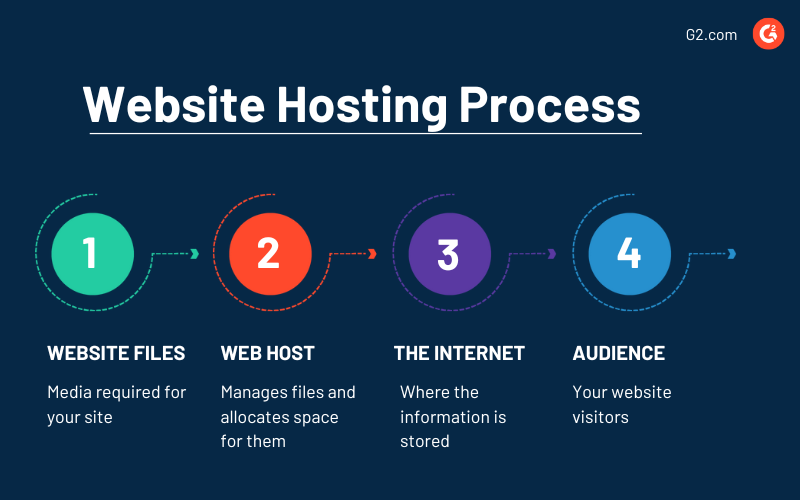Advanced Tips for Optimizing Efficiency with Serverstep Solutions
Wiki Article
Assessing the Secret Differences Between Shared, VPS, and Committed Webhosting to Establish the Finest Fit for Your Business Objectives
In today's electronic landscape, selecting the proper internet organizing remedy is critical for aligning with your company goals. Shared hosting offers a cost-effective entrance point for small enterprises, while VPS holding strikes a balance between performance and expense for those experiencing growth.Overview of Hosting Kinds
In the world of internet organizing, comprehending the different types offered is critical for making an informed decision customized to details demands. Host mainly encompasses shared hosting, online private web servers (VPS), devoted hosting, and cloud hosting. Each type uses distinct advantages and drawbacks, catering to various organization needs.Shared holding is the most cost-effective solution, where numerous web sites live on a single web server. This option is optimal for tiny organizations or personal websites with small web traffic needs. VPS holding provides a virtualized atmosphere, enabling better control and modification, making it appropriate for expanding businesses with rising and fall website traffic.
Devoted holding, on the other hand, supplies a whole server solely for one website, offering robust efficiency and protection. This type is preferred by big enterprises or high-traffic websites that require optimal resources and control.
Last but not least, cloud organizing leverages a network of web servers to distribute sources, ensuring scalability and reliability. It is specifically beneficial for services with unforeseeable web traffic patterns. Each hosting type presents distinct characteristics, and recognizing these distinctions is important for selecting the best option that straightens with your company objectives.
Shared Hosting Discussed
Shared holding is a popular choice for people and tiny organizations as a result of its cost and simpleness. In this holding design, multiple websites reside on a single server, sharing its sources such as CPU, RAM, and disk area. This setup enables hosting companies to provide affordable prices, making it an attractive alternative for those with minimal budget plans.One of the vital advantages of common holding is its user-friendly arrangement, usually gone along with by one-click installation of preferred material administration systems (CMS) like WordPress. This ease of access makes it possible for individuals with minimal technological understanding to establish and manage their on-line visibility properly.
However, shared holding comes with particular restrictions. Because sources are shared among numerous individuals, efficiency can be affected, especially throughout height traffic times. Furthermore, security issues might occur, as vulnerabilities in one website can possibly jeopardize others on the very same server.
Comprehending VPS Hosting
VPS hosting is regularly pertained to as a happy medium between common organizing and dedicated servers, offering boosted performance and better control. Digital Private Servers (VPS) make use of virtualization technology to dividers a physical server right into multiple isolated atmospheres. Each VPS runs individually, with its very own os, resources, and arrangements, permitting users to set up software program and make system modifications according to their certain demands.This sort of hosting is particularly appealing for services experiencing development or calling for even more sources than what shared organizing can supply. With VPS organizing, customers take advantage of committed CPU, RAM, and storage allotments, which cause enhanced web site loading rates and general performance. Furthermore, the seclusion from other individuals minimizes the danger of server source contention, enhancing stability.
Moreover, VPS hosting offers scalable services, enabling organizations to important site readjust their resources conveniently as their demands advance. This adaptability is critical for companies that prepare for rising and fall website traffic patterns or seasonal demands. Generally, VPS organizing strikes a balance in between cost-effectiveness and source management, making it a suitable selection for medium-sized services seeking a adjustable and reputable hosting solution.
Advantages of Dedicated Hosting
The advantages of dedicated organizing are substantial, especially for businesses that require maximum efficiency and control over their server setting. One of the key benefits is boosted efficiency; dedicated servers supply special resources, guaranteeing consistent rate and reliability, which is important for high-traffic web sites and applications - my review here SERVERSTEP. This makes sure that customers experience very little downtime and fast tons times, positively influencing user contentment and retention
Furthermore, dedicated holding supplies superior protection. With a specialized web server, companies can carry out customized protection steps, consisting of firewalls, intrusion discovery systems, and protected accessibility protocols. This level of modification assists shield delicate information from prospective violations, which is especially important for ecommerce and economic companies.

Selecting the Right Choice
Selecting the ideal hosting alternative is essential for businesses aiming to attain their particular objectives while optimizing efficiency and source monitoring. When thinking about shared, VPS, or dedicated organizing, businesses need to assess their one-of-a-kind requirements, consisting of website traffic quantity, resource demands, and spending plan constraints.
Shared holding might be suitable for startups or little sites with limited website traffic, as it supplies a cost-efficient solution with minimal management. In comparison, VPS holding supplies a middle ground, providing higher control and dedicated dig this resources at a modest rate factor.
For larger business or those with particular conformity requirements, devoted hosting is typically the best choice. It delivers optimal performance, protection, and personalization capacities, albeit at a greater expense. Eventually, the choice should align with business's lasting purposes, making certain that the chosen organizing remedy not just fulfills present needs however additionally accommodates future growth and scalability. Correct evaluation and foresight will certainly bring about an educated option, promoting boosted online presence and functional efficiency.
Verdict

In final thought, selecting the ideal internet holding choice hinges on details service purposes and expected growth. Shared holding is optimal for startups with limited website traffic, while VPS holding strikes an equilibrium between price and efficiency for growing companies.
Shared organizing deals an affordable entry factor for little enterprises, while VPS organizing strikes a balance in between performance and price for those experiencing development. Internet holding largely incorporates common organizing, online exclusive servers (VPS), committed holding, and cloud organizing (SERVERSTEP).This type of holding is particularly appealing for organizations experiencing development or calling for more resources than what shared organizing can supply. Overall, VPS organizing strikes a balance between cost-effectiveness and source administration, making it a suitable option for medium-sized businesses looking for a customizable and reputable organizing solution
Shared hosting is excellent for startups with restricted web traffic, while VPS organizing strikes an equilibrium between expense and efficiency for expanding organizations.
Report this wiki page